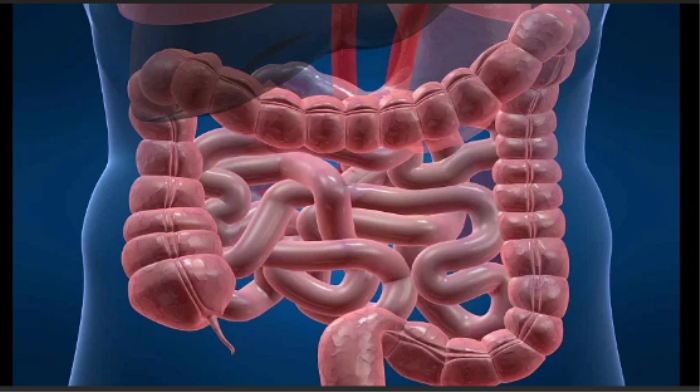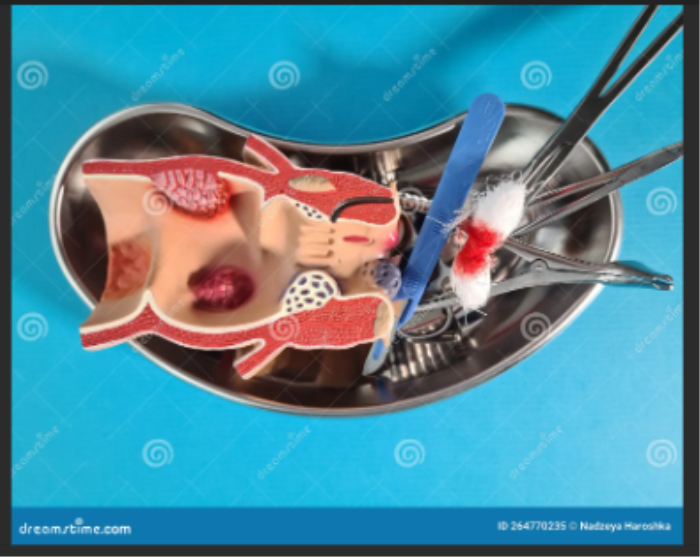Intestine transplant recovery in India involves a well-structured process aimed at ensuring a successful recovery and long-term health for patients. After an intestine transplant, patients need dedicated care and regular follow-ups to monitor their progress. Recovery phases, the hospital stay, and the transition to normal activities are closely supervised by specialized medical teams in India. Hospitals focus on preventing complications, maintaining strict hygiene, and educating patients on managing their new lifestyle. Understanding what to expect during recovery can help patients and their families be well-prepared for this journey.

Immediate Post-Operative Care after Intestine Transplant Surgery
In the immediate post-operative phase, patients are kept under close observation in the Intensive Care Unit (ICU) to monitor their vital signs and organ function. During this period, medical staff carefully track any signs of complications or organ rejection. Specialized nursing teams focus on stabilizing the patient, managing pain, and ensuring that all post-surgical protocols are followed. The patient remains under 24/7 surveillance to swiftly address any unexpected changes.
Understanding the Importance of Post-Transplant Monitoring
Post-transplant monitoring is critical for identifying early signs of complications or organ rejection. Regular blood tests, imaging studies, and biopsies are performed to check the functionality of the transplanted intestine. Doctors in India also use advanced monitoring techniques to track how well the body is accepting the new organ. Adherence to follow-up appointments helps ensure timely intervention in case of any issues.
How Long is the Recovery Period after an Intestine Transplant?
The typical recovery period after an intestine transplant in India spans several months, depending on individual cases and how well the patient adheres to medical advice. Initial recovery usually takes place over a 4-8 week period in the hospital, with further improvements seen over the following months. During this time, patients gradually transition to oral nutrition and normal activities while remaining under medical supervision.

Role of ICU in the Initial Recovery Phase
The ICU plays a pivotal role in the early recovery phase following an intestine transplant. Patients are closely monitored for infections, internal bleeding, and other post-surgical complications. The specialized medical team in the ICU focuses on stabilizing the patient’s condition, maintaining strict hygiene, and implementing pain management strategies to promote healing and prevent complications.
Hospital Stay Duration: What to Expect After Surgery
The average hospital stay after an intestine transplant in India is around 3-4 weeks, depending on the patient's health and any arising complications. During this period, patients receive comprehensive care and regular health assessments. Hospital staff work on stabilizing the patient's nutrition, medications, and physical rehabilitation to prepare them for discharge and at-home recovery.
Pain Management and Medication Plan
A comprehensive pain management plan is crucial for a smooth recovery after an intestine transplant. Doctors in India prescribe a tailored medication plan, including pain relievers and immunosuppressive medications to prevent rejection. Patients are closely monitored to manage side effects and adjust the medication as necessary to ensure comfort and optimal health.
Nutritional Support and Dietary Changes Post-Transplant
Post-transplant patients often face significant dietary changes to support the healing of the new intestine. Initially, patients are kept on intravenous nutrition until their digestive system stabilizes. Gradual reintroduction of a nutrient-rich diet is managed by dietitians, with continuous monitoring to avoid complications such as infection or digestive issues.
Physical Activity and Rehabilitation Guidelines
Physical activity and rehabilitation are essential components of post-transplant recovery. In India, patients receive customized rehabilitation plans that gradually increase their activity level without straining the new organ. Simple exercises, guided by physiotherapists, help improve overall strength, mobility, and blood circulation, which is vital for preventing post-surgical complications.
Wound Care and Hygiene Tips for Quick Healing
Proper wound care and hygiene are essential to prevent infections after an intestine transplant. Patients are advised to keep the surgical site clean and dry, follow doctors' instructions on dressing changes, and practice good personal hygiene. Hospitals in India provide detailed instructions and demonstrations to patients and caregivers to ensure they are equipped to manage post-operative care.

Dealing with Post-Surgical Complications and Risks
Post-operative complications like infections, bleeding, or organ rejection are potential risks after an intestine transplant. Medical teams in India monitor patients closely for any signs of complications and are prepared to address issues immediately. Patients are educated on recognizing symptoms and the importance of reporting them promptly.
Psychological Support and Emotional Well-being During Recovery
Psychological support plays a crucial role in a patient’s recovery journey. After an intestine transplant, patients might experience anxiety or depression due to the lifestyle changes and stress. Counseling sessions and support groups are made available in leading hospitals in India, helping patients and their families manage their emotional health and regain confidence.
Signs of Rejection to Watch Out For
Recognizing the early signs of rejection is crucial to ensure timely medical intervention. Symptoms like persistent fever, severe abdominal pain, vomiting, or noticeable changes in stool patterns should be reported immediately. Patients are provided with detailed instructions on what to look for and encouraged to maintain open communication with their healthcare team.
Medications for Preventing Organ Rejection
Immunosuppressive medications are essential to prevent the immune system from rejecting the new intestine. Patients are prescribed a combination of drugs tailored to their specific needs. Regular monitoring of drug levels and adjusting doses as needed help maintain the delicate balance required for long-term health.
Routine Blood Tests and Biopsies During Recovery
Regular blood tests and biopsies are integral to monitoring the success of an intestine transplant. Blood tests help track overall health and identify any signs of infection or rejection early. Routine biopsies provide detailed insights into the condition of the transplanted organ, enabling doctors to make proactive adjustments to treatment plans.
Infection Prevention: Essential Hygiene Practices
Infection prevention is a top priority during the recovery period. Hospitals in India educate patients and their families about maintaining strict hygiene, such as regular handwashing, avoiding exposure to contagious illnesses, and practicing safe food preparation. A focus on proactive measures helps minimize infection risks significantly.
Complications After Intestine Transplant
Understanding the Complications After Intestine Transplant is essential for patients and families to manage potential risks. Knowing the signs and management techniques can aid in early intervention and improved outcomes. Potential complications include infection, organ rejection, and nutritional deficiencies. Proactive care and regular follow-ups are key to addressing these challenges effectively.
Living Donor Intestine Transplant: Risks, Benefits, and Success Stories
Exploring the Risks, Benefits, and Success Stories of Living Donor Intestine Transplant provides insights into this life-saving procedure, highlighting the experiences of donors and recipients and the medical advances that make it possible. With advanced techniques, living donor transplants have become safer and more successful. Hearing from those who have undergone the journey can be inspiring for potential donors and recipients alike.
Managing Side Effects of Immunosuppressive Medications
Side effects from immunosuppressive drugs can range from minor digestive issues to more severe complications. Doctors monitor patients closely for any adverse reactions and make necessary adjustments. Patients are advised on managing common side effects like nausea, fatigue, or increased susceptibility to infections with supportive care measures.
Building a Healthy Diet Plan for Intestinal Health
A tailored diet plan is essential for maintaining intestinal health after a transplant. Dietitians in India work closely with patients to create a balanced meal plan that includes the right nutrients while avoiding foods that could cause irritation or complications. Emphasis is placed on fresh, easily digestible foods and maintaining proper hydration.
Importance of Staying Hydrated Post-Transplant
Staying hydrated is vital for post-transplant recovery, as dehydration can affect the new organ’s health. Patients are encouraged to drink adequate amounts of water and avoid caffeinated or sugary drinks that could disrupt their recovery. Hospitals in India provide guidelines on maintaining hydration while balancing nutrition effectively.
Gradual Transition to Normal Eating Habits
The transition to normal eating habits should be gradual and carefully monitored. Patients start with soft foods and gradually introduce more complex meals under medical supervision. Nutritionists track the patient’s progress, helping them adjust their diet based on how well their digestive system adapts to the changes.
Follow-Up Appointments and Regular Check-Ups
Regular follow-up appointments are necessary to track recovery progress and address any arising concerns. Doctors assess the patient’s overall health, adjust medication plans, and perform routine tests to monitor the transplanted intestine's health. Consistent check-ups help in identifying issues early and ensuring long-term success.
Signs You Should Immediately Contact Your Doctor
Patients are advised to contact their doctor immediately if they experience symptoms like persistent fever, unusual pain, difficulty eating, or sudden changes in stool patterns. Prompt medical attention can prevent complications and ensure that any issues are addressed swiftly, maintaining the health of the transplanted organ.
Understanding the Role of Family Support During Recovery
Family support is crucial for the emotional and physical recovery of patients. Caregivers are educated about the patient’s post-transplant care needs, including medication schedules, dietary guidelines, and recognizing symptoms of complications. A supportive environment contributes significantly to the patient's recovery journey.
Balancing Physical Activity with Rest for Recovery
Finding the right balance between physical activity and rest is key to a successful recovery. Patients are advised to engage in light activities initially, focusing on increasing mobility and circulation, while also prioritizing adequate rest periods to promote healing. Physiotherapists guide patients in adopting a balanced routine.
Coping with Emotional Challenges After Transplant
Patients may face emotional challenges like anxiety, depression, or fear of complications during their recovery. Access to counseling services and patient support groups can be beneficial. Hospitals in India emphasize the importance of mental health, encouraging patients to seek help if they struggle with emotional well-being.
Long-Term Lifestyle Changes for a Healthy Life
Adopting long-term lifestyle changes is essential for maintaining the success of an intestine transplant. Patients are encouraged to follow a balanced diet, adhere to medication plans, maintain hygiene, and avoid activities that could put undue stress on their health. Long-term care plans are discussed thoroughly with patients and families.
Returning to Work or School After Intestine Transplant
Patients can consider returning to work or school once their doctors confirm that their recovery is progressing well. It’s essential to resume activities gradually and avoid strenuous tasks. Hospitals in India provide guidelines on returning to normalcy, including work schedules and balancing responsibilities with ongoing care.
Monitoring Your Health at Home: What You Need to Know
After discharge, patients are guided on monitoring their health at home, including checking for signs of infection, maintaining proper wound care, and managing their medications. Regular communication with healthcare providers and adherence to post-discharge instructions are crucial for a smooth recovery journey.
How India’s Medical Expertise Supports Intestine Transplant Recovery
India’s medical expertise in intestine transplant recovery includes advanced monitoring technologies, personalized care plans, and world-class hospitals. With experienced transplant teams and state-of-the-art facilities, patients receive comprehensive care throughout the recovery process, ensuring the best possible outcomes.
FAQs About Intestine Transplant Recovery in India
Q1. How long does it take to recover fully after an intestine transplant?
The recovery period usually lasts several months, with patients gradually resuming normal activities within 6-12 months, depending on individual progress.
Q2. What are the common signs of organ rejection after an intestine transplant?
Common signs include persistent fever, severe abdominal pain, vomiting, and noticeable changes in bowel movements or stool patterns.
Q3. Is pain common during the recovery period after an intestine transplant?
Yes, some pain is normal, but it is effectively managed through a tailored pain management plan prescribed by your doctor.
Q4. How often are follow-up appointments required after an intestine transplant?
Follow-up appointments are frequent in the initial months and gradually become less frequent as recovery progresses, with routine check-ups continuing long-term.
Q5. What dietary changes should be expected after an intestine transplant?
Dietary changes include gradual reintroduction of soft, nutrient-rich foods, followed by a balanced diet plan focusing on digestive health and hydration.
Q6. How can I reduce the risk of infections post-transplant?
Maintaining strict hygiene, avoiding contact with contagious individuals, and following your doctor’s advice on infection prevention are crucial.
Q7. What kind of emotional support is available after an intestine transplant?
Patients have access to counseling services and support groups in hospitals to help manage emotional challenges like anxiety and depression.
Q8. Can I return to work after an intestine transplant, and when?
Yes, patients can return to work once doctors confirm their recovery is stable, typically within 6-12 months, with gradual resumption of activities.
Q9. What physical activities are recommended during the recovery period?
Light activities like walking are recommended initially, with a gradual increase in intensity under the guidance of physiotherapists.
Q10. Are there long-term medications required after an intestine transplant?
Yes, lifelong immunosuppressive medications are necessary to prevent organ rejection, with doses adjusted based on regular health assessments.
Related Resources
At ArogyaJivan, we strive to provide you with the most accurate and up-to-date information to help you make informed decisions about your healthcare. Whether you are searching for the Best Doctors in India or the Top 5 Doctors in India, our resources are tailored to guide you through your medical journey. Additionally, our comprehensive guides on the Best Hospitals in India and the Top 5 Hospitals in India will assist you in choosing the right healthcare facility for your needs. Explore these resources to ensure you receive the best possible care.
